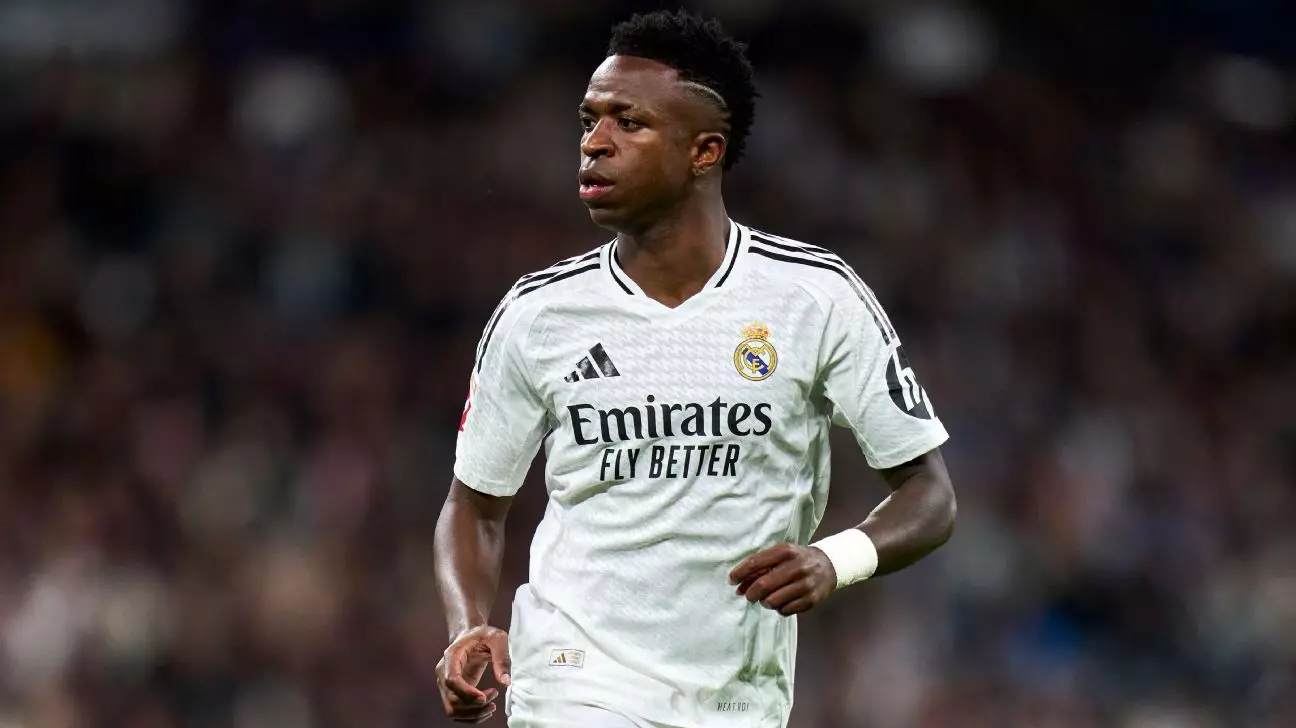In a recent statement at the Globe Soccer Awards, Cristiano Ronaldo voiced his strong belief that Vinícius Júnior, the Brazilian forward for Real Madrid, was unfairly overlooked for the prestigious Ballon d’Or award in 2023. This assertion is particularly noteworthy given Ronaldo’s illustrious history with the accolade—having won it five times himself. His comments reflect not just a personal opinion but also a larger conversation about merit and recognition within the football world.
Ronaldo highlighted that Vinícius deserved to clinch the award over Manchester City’s Rodri, noting that his contributions to Real Madrid, particularly in the Champions League final, should have earned him the honor. This claim resonates with many fans and analysts who argued that performances on the big stage, such as scoring in finals, should weigh heavily in the decision-making process for such awards.
Amid discussions of fairness and recognition, it’s worth noting that Vinícius and his Real Madrid teammates chose to boycott the Ballon d’Or ceremony in Paris. Their absence was a statement in itself, one that symbolizes a protest against what they perceived to be a flawed system. The decision to abstain from attending showcases a profound disappointment and suggests a collective sentiment among players that not all achievements are rewarded equally.
Ronaldo’s comments further underscore this notion of injustice in award distributions. By stating, “It was unfair, in my opinion,” he aligns himself with the idea that the broader football community shares a responsibility to advocate for those who have excelled, rather than simply adhering to institutional traditions.
Despite the disappointment associated with the Ballon d’Or, Vinícius has not remained without accolades. Earlier in the month, he received FIFA’s The Best Men’s Player award and later clinched the best men’s prize at the Globe Soccer Awards. These victories not only validate his performance but also serve as a reminder that while some awards may fall short of acknowledging players’ true contributions, others are recognizing their talents and achievements.
On the other side of the podium, Barcelona’s Aitana Bonmatí was honored with the women’s player of the year award, further establishing the growing emphasis on female athletes in soccer. The parallel recognition of both male and female players at these prestigious events signals a progressive shift in the landscape of sports awards.
Ronaldo did not shy away from criticizing France Football, which oversees the Ballon d’Or. His comments illuminate a deep-seated frustration regarding the inconsistency of award nominations and the potential biases within the voting process.
Additionally, he used the occasion to reflect on his former club, Manchester United, suggesting that its struggles extend beyond coaching issues to deeper, systemic problems. This insight invites a broader conversation about how clubs are managed and the factors contributing to their successes or failures.
Ronaldo’s statements serve as a catalyst for discussions about recognition in sports, the significance of awards, and the challenges that players face despite their monumental efforts on the field. His support for Vinícius reinforces the need for a reexamination of how achievements are valued within the footballing community, prompting a demand for fairness and transparency in award processes.

Leave a Reply